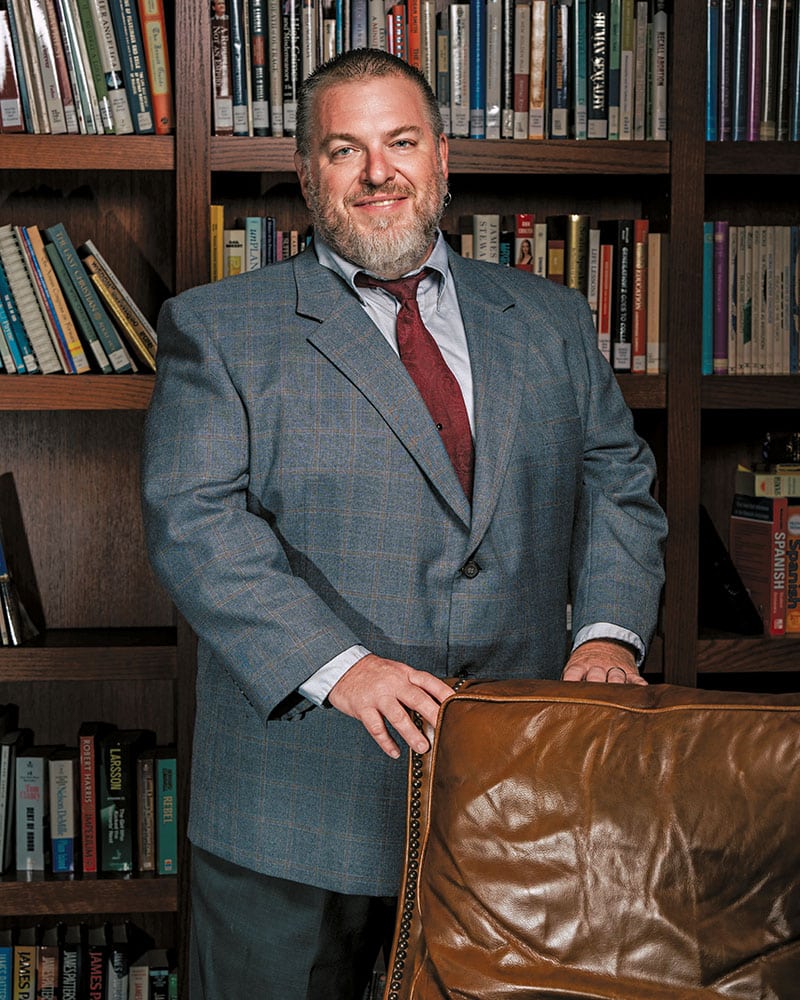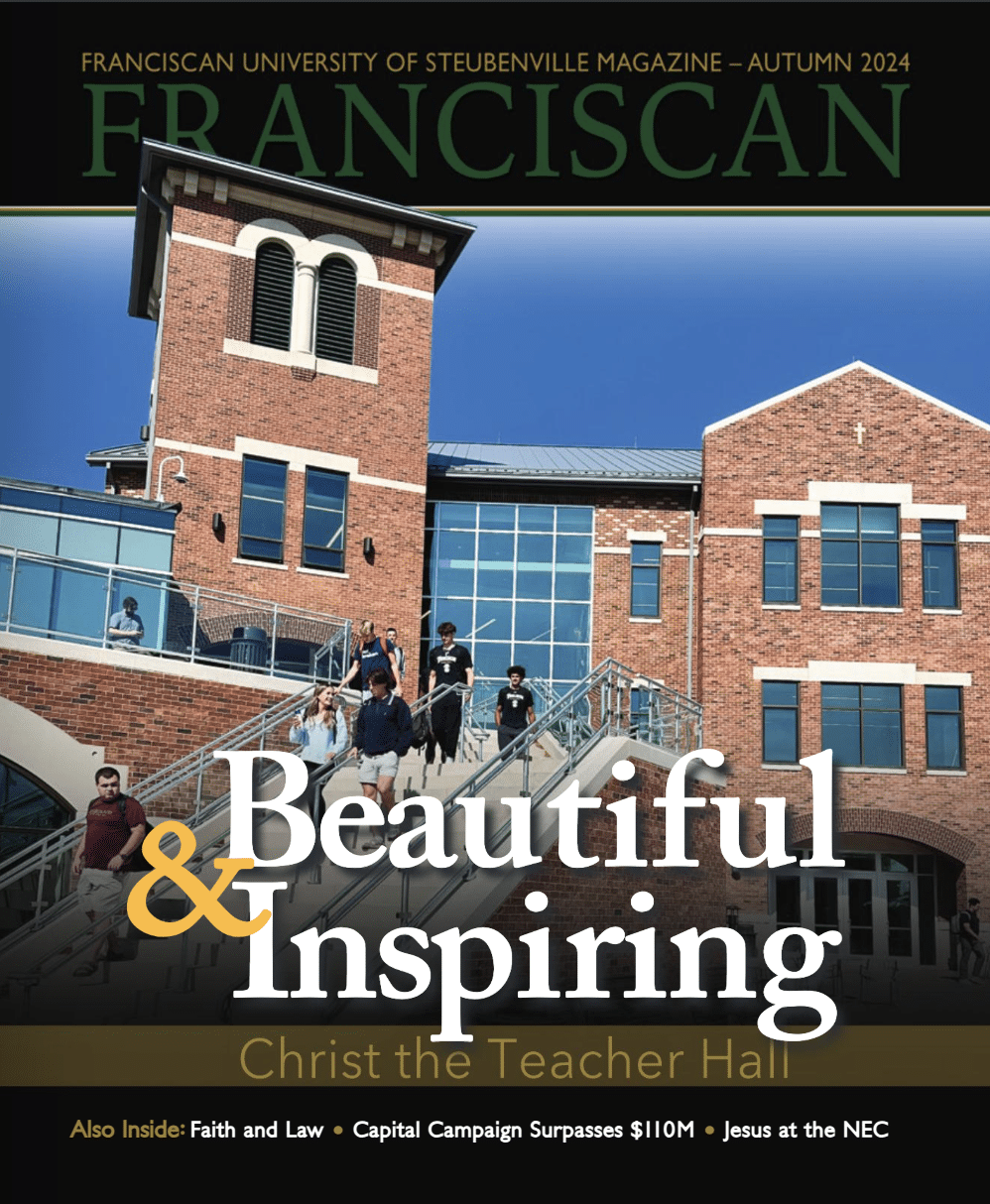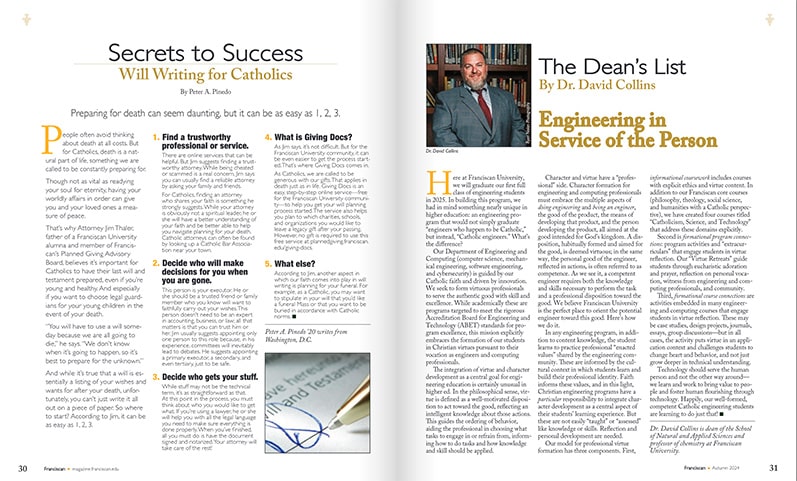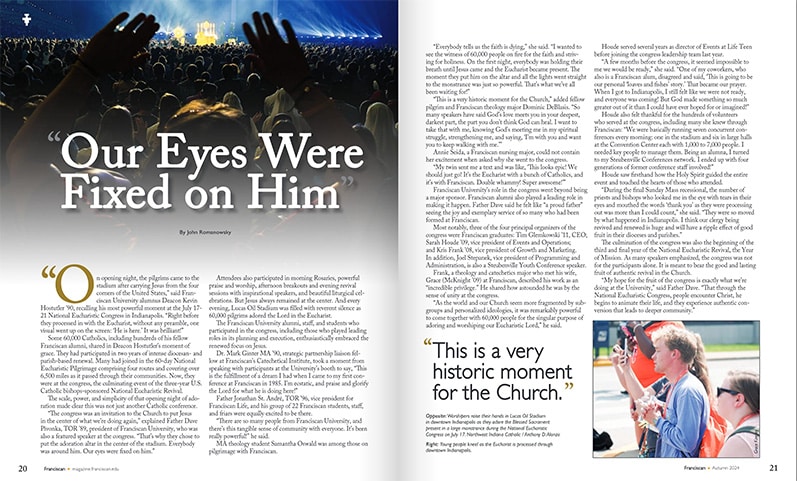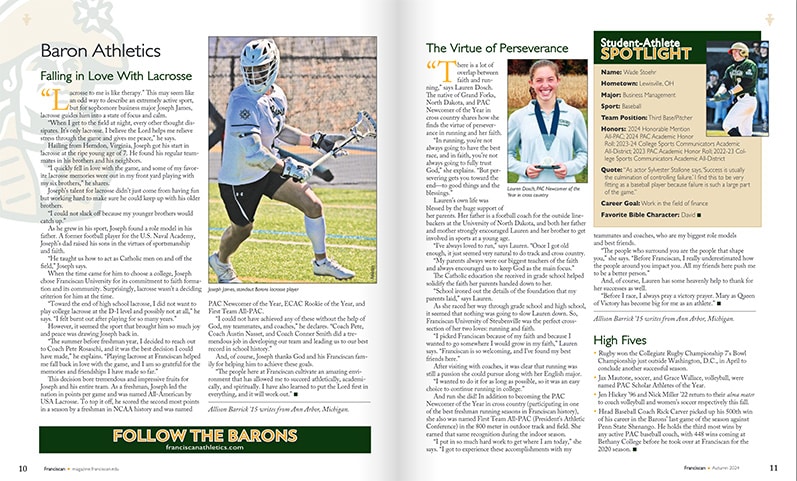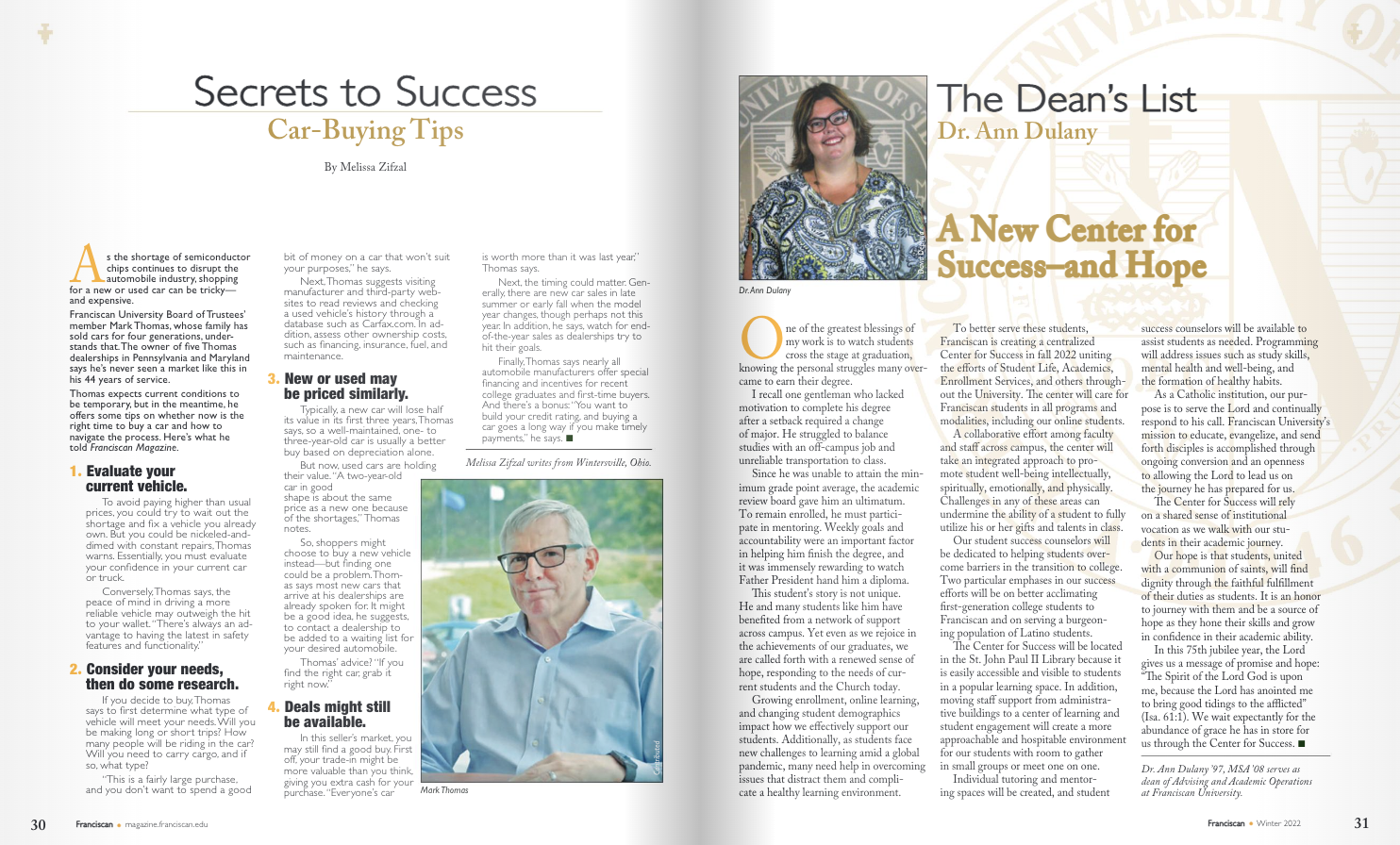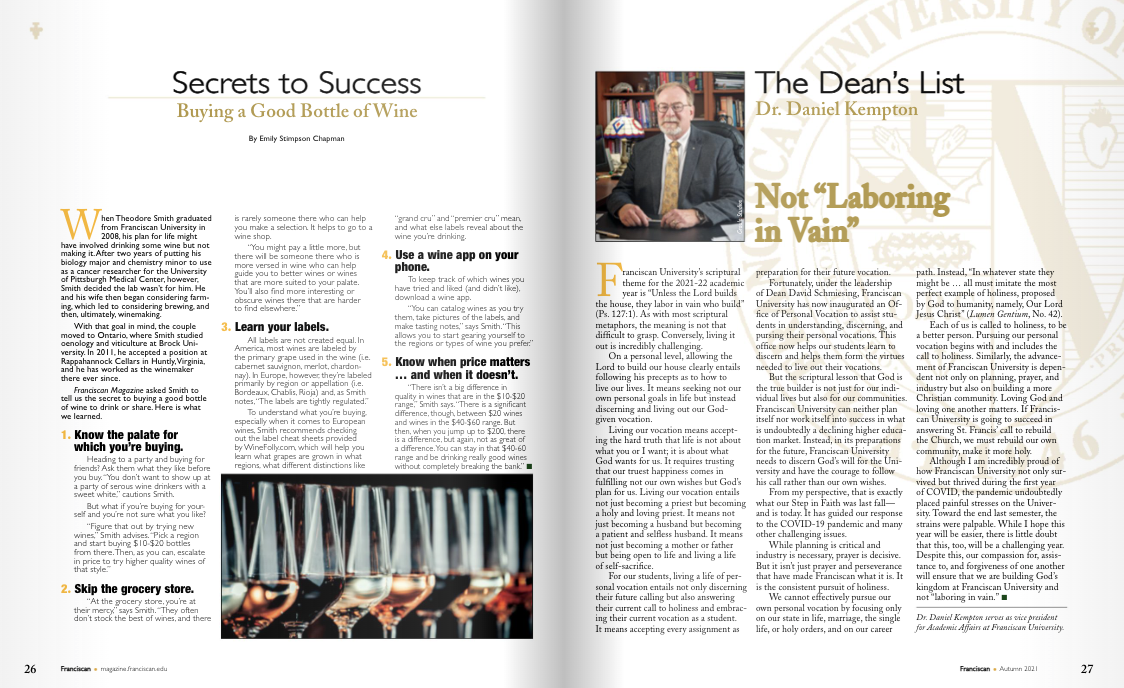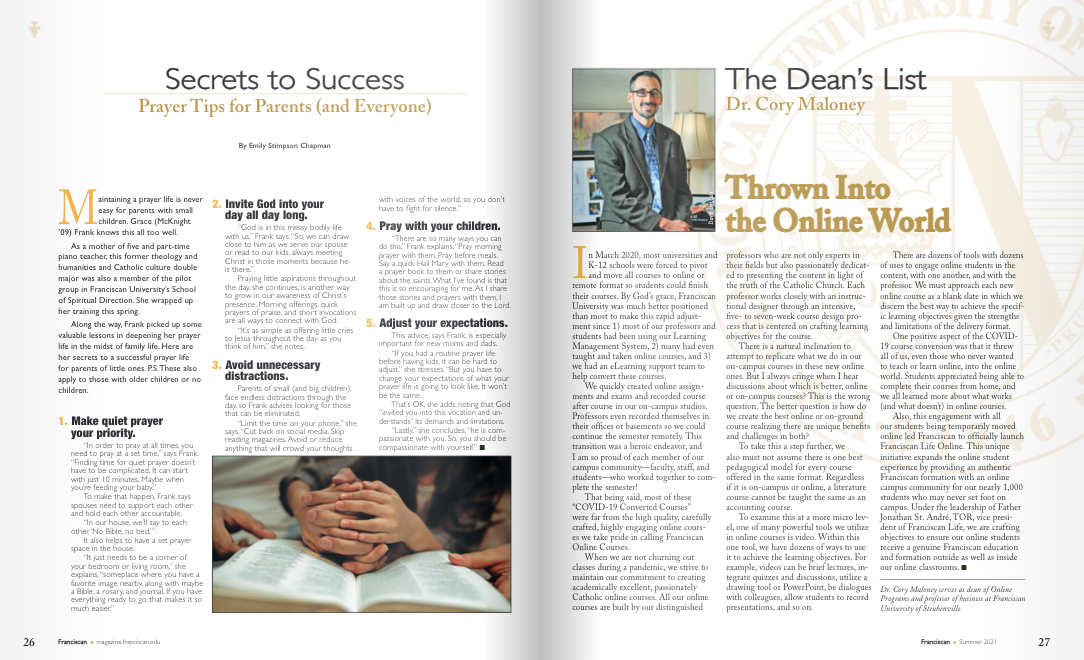Here at Franciscan University, we will graduate our first full class of engineering students in 2025. In building this program, we had in mind something nearly unique in higher education: an engineering program that would not simply graduate “engineers who happen to be Catholic,” but instead, “Catholic engineers.” What’s the difference?
Our Department of Engineering and Computing (computer science, mechanical engineering, software engineering, and cybersecurity) is guided by our Catholic faith and driven by innovation. We seek to form virtuous professionals to serve the authentic good with skill and excellence. While academically these are programs targeted to meet the rigorous Accreditation Board for Engineering and Technology (ABET) standards for pro- gram excellence, this mission explicitly embraces the formation of our students in Christian virtues pursuant to their vocation as engineers and computing professionals.
The integration of virtue and character development as a central goal for engineering education is certainly unusual in higher ed. In the philosophical sense, virtue is defined as a well-motivated disposition to act toward the good, reflecting an intelligent knowledge about those actions. This guides the ordering of behavior, aiding the professional in choosing what tasks to engage in or refrain from, informing how to do tasks and how knowledge and skill should be applied.
Character and virtue have a “professional” side. Character formation for engineering and computing professionals must embrace the multiple aspects of doing engineering and being an engineer, the good of the product, the means of developing that product, and the person developing the product, all aimed at the good intended for God’s kingdom. A disposition, habitually formed and aimed for the good, is deemed virtuous; in the same way, the personal good of the engineer, reflected in actions, is often referred to as competence. As we see it, a competent engineer requires both the knowledge and skills necessary to perform the task and a professional disposition toward the good. We believe Franciscan University is the perfect place to orient the potential engineer toward this good. Here’s how we do it.
In any engineering program, in addition to content knowledge, the student learns to practice professional “enacted values” shared by the engineering community. These are informed by the cultural context in which students learn and build their professional identity. Faith informs these values, and in this light, Christian engineering programs have a particular responsibility to integrate character development as a central aspect of their students’ learning experience. But these are not easily “taught” or “assessed” like knowledge or skills. Reflection and personal development are needed.
Our model for professional virtue formation has three components. First, informational coursework includes courses with explicit ethics and virtue content. In addition to our Franciscan core courses (philosophy, theology, social science, and humanities with a Catholic perspective), we have created four courses titled “Catholicism, Science, and Technology” that address these domains explicitly.
Second is formational program connections: program activities and “extracurriculars” that engage students in virtue reflection. Our “Virtue Retreats” guide students through eucharistic adoration and prayer, reflection on personal vocation, witness from engineering and computing professionals, and community.
Third, formational course connections are activities embedded in many engineering and computing courses that engage students in virtue reflection. These may be case studies, design projects, journals, essays, group discussions—but in all cases, the activity puts virtue in an application context and challenges students to change heart and behavior, and not just grow deeper in technical understanding.
Technology should serve the human person and not the other way around—we learn and work to bring value to people and foster human flourishing through technology. Happily, our well-formed, competent Catholic engineering students are learning to do just that!
Dr. David Collins is dean of the School of Natural and Applied Sciences and professor of chemistry at Franciscan University.



